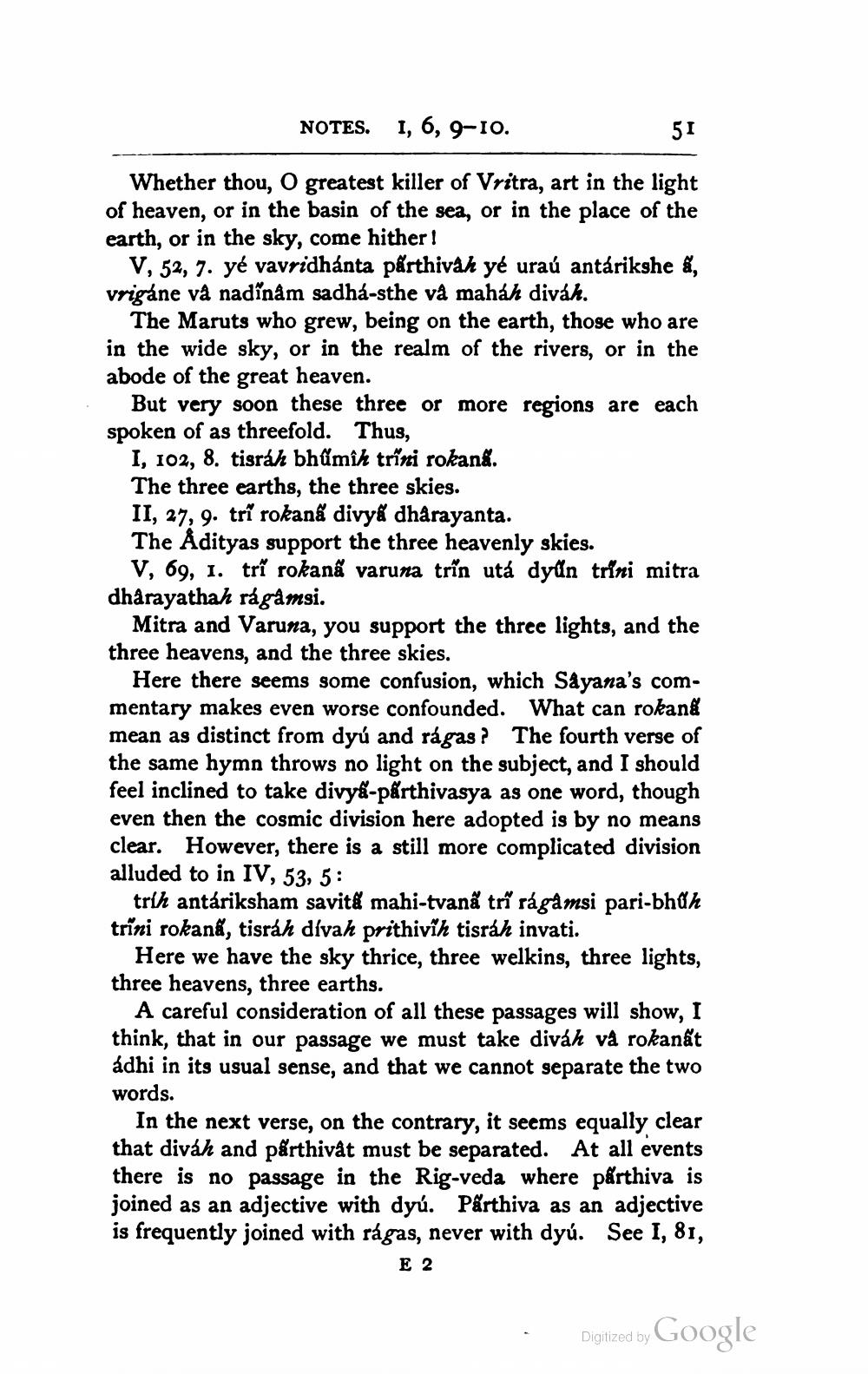________________
NOTES. 1, 6, 9-10.
51
Whether thou, O greatest killer of Vritra, art in the light of heaven, or in the basin of the sea, or in the place of the earth, or in the sky, come hither!
V, 52, 7. yé vavridhánta párthivah yé uraú antarikshe &, vrgine và nadĩnam adha-sthe và mahak divải.
The Maruts who grew, being on the earth, those who are in the wide sky, or in the realm of the rivers, or in the abode of the great heaven.
But very soon these three or more regions are each spoken of as threefold. Thus,
1, 102, 8. tisráh bhûmîh trini rokana. The three earths, the three skies. II, 27, 9. tri rokană divya dharayanta. The Adityas support the three heavenly skies.
V, 69, 1. trĩ rokanā varuna trîn utá dyan trini mitra dharayathah ragamsi.
Mitra and Varuna, you support the three lights, and the three heavens, and the three skies.
Here there seems some confusion, which Sayana's commentary makes even worse confounded. What can rokana mean as distinct from dyú and rágas? The fourth verse of the same hymn throws no light on the subject, and I should feel inclined to take divya-pârthivasya as one word, though even then the cosmic division here adopted is by no means clear. However, there is a still more complicated division alluded to in IV, 53, 5:
trih antariksham savit& mahi-tvaná tri ragamsi pari-bhứh trîni rokanā, tisráh divah prithivih tisráh invati.
Here we have the sky thrice, three welkins, three lights, three heavens, three earths.
A careful consideration of all these passages will show, I think, that in our passage we must take diváh và rokanát ádhi in its usual sense, and that we cannot separate the two words.
In the next verse, on the contrary, it seems equally clear that diváh and párthivât must be separated. At all events there is no passage in the Rig-veda where pârthiva is joined as an adjective with dyú. Pârthiva as an adjective is frequently joined with rágas, never with dyú. See I, 81,
E 2
Digitized by Google




